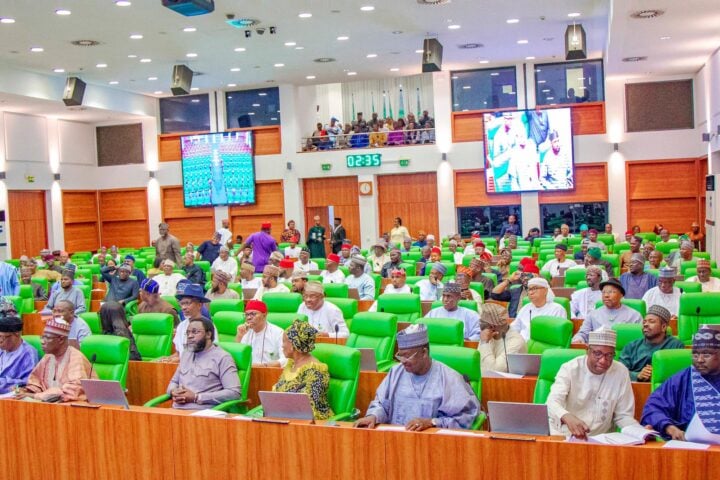Daniel Bwala
Daniel Bwala, a former spokesperson for the Atiku Abubakar campaign in the 2023 election, says the Department of State Services (DSS) has the right to raid anywhere as long as it has actionable intelligence.
Bwala was commenting on the controversy between the Socio-Economic Rights and Accountability Project (SERAP) and the DSS.
BACKGROUND
In September, SERAP said DSS agents “unlawfully occupied” its office in Abuja, adding that operatives had demanded to see its directors.
Advertisement
The alleged invasion occurred barely 24 hours after SERAP urged President Bola Tinubu to direct the Nigerian National Petroleum Company (NNPC) Limited to reverse the hike in the pump price of petrol.
The group also asked Tinubu to direct the DSS to end the harassment, intimidation, and attack on Nigerians.
The DSS had said its visit to SERAP’s office was a routine procedure, describing the allegations as “malicious”.
Advertisement
In a suit filed on October 17, the DSS said the claims made by SERAP negatively impacted its reputation and that of Sarah John and Gabriel Ogundele, the police officers involved.
The secret police demanded N5.5 billion in damages from the civil society organisation (CSO).
The DSS sought an order directing SERAP to apologise via its website and social media, adding that the apology must be published in national dailies and television stations.
‘POWERS OF LAW ENFORCEMENT CHECKED BY COURTS’
Advertisement
Speaking on ‘Morning Brief’, a Channels Television programme, on Tuesday, Bwala said SERAP is inciting Nigerians against the DSS.
“The veracity or otherwise of what SERAP is claiming will be determined by the court by the time the DSS states its case before the court as to whether it has been defamed or not,” Bwala said.
“SERAP should… and every other civil society should know that there is a difference, just like the way SERAP do not want interference in the functionality of their objectives, that law enforcement also have laws that are established and govern their operation.
“DSS, for example, is an intelligence agency that is created to detect and prevent crime within the state and the prevention and detection of crime.
Advertisement
“They carry it out through various capacities that they have, which includes intelligence collection. It includes operations that they need to carry out to stop crime.
“So therefore, I lay the background to say that DSS has a right, in the day or at night, to invade any place in the country if the intelligence they gather suggests that they need to act swiftly.
Advertisement
“But the good thing about democracy within our constitutional framework is that the exercise of that power can always be checked by the law court, not by inciting the public.
“You see, because SERAP, if it felt that DSS intimidated it, the constitution provides that if you feel that your right is violated, is about to be violated, or you think it’s about to be violated, you can approach the court and seek for the enforcement.”
Advertisement
Bwala said the judiciary checks executive powers, including those of the police and DSS, adding that individuals cannot obstruct law enforcement while expecting legal protection.
“I have not mentioned anything regarding the suit. DSS by law can come with advanced capabilities — I’m telling you what the law empowers them to do, and also what actions by an individual can warrant their intervention, without necessarily requiring a phone call,” Bwala added.
Advertisement
“They can just appear in your… take for example, if there is an exhibit that is a crime that they have based on their intelligence and investigation discovered, at the minute they write you, you will move the exhibit away from there.
“The minute they call you, you probably move the exhibit — I’m not saying it exists — but you are not to incite the public. The tweeting (SERAP X post) of that is to incite the public against the DSS. You didn’t tell us you were annoyed.
“We asked for individuals, you told us they are not around, but you notified them, without showing any signs of feeling intimidated by the knock on your door.
“Instead, you tweeted about it to sway public perception. The DSS could have simply visited your office to inquire about the tweet and ask for an explanation.”








